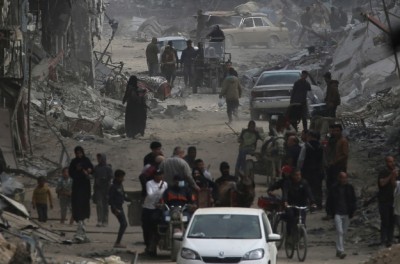The McGowan Labor Government will provide all Western Australian households a $400 Household Electricity Credit in the 2022-23 State Budget to assist with the current cost of living pressures for Western Australians.
The 2022-23 Budget utilises the stronger than expected surplus to provide a new $400 credit at a cost of about $445 million. This builds on the McGowan Government’s $600 credit delivered in 2020-21, which together will provide $1,000 in electricity relief for WA households.
In total, the McGowan Government has now spent more than $2.1 billion over the past four years to deliver cost of living support.
From July 1, 2022, the household basket of fees and charges will decline by 3.8 per cent, including the impact of the credit, making it the third consecutive year that the basket of household fees and charges has been kept to below projected inflation.
In 2022-23, household fees and charges are four per cent lower than prior to the pandemic in 2019-20.
At the 2021 State Election, the McGowan Government committed to keeping increases to household electricity and water charges plus public transport capped at inflation. The 2022-23 State Budget goes beyond this.
Electricity and water charges will rise by 2.5 per cent, Transperth and Transwa standard fares will increase by just two per cent and school student fares remain frozen at 70 cents – all below the projected inflation rate of 2.75 per cent in 2022-23.
Western Australians will continue to benefit from the two-zone fare cap on Transperth fares, which was implemented from January 1, 2022, saving as much as $3,000 a year on public transport travel.
The average Emergency Services Levy charge will rise by five per cent in 2022-23, $15 or 4.8 per cent below pre-COVID levels.
Motor vehicle-related charges, which include vehicle licence charges, motor injury insurance, the recording fee and driver’s licence, will rise by a total of $31.06 (3.4 per cent) compared to 2021-22 for the average household.
The McGowan Government is also supporting households through its free Rapid Antigen Test (RAT) program, the only one of its kind in Australia. The program to date has provided households with savings on the purchase of RATs of about $150.
For more information, visit https://www.ourstatebudget.wa.gov.au
As stated by Premier and Treasurer Mark McGowan:
“Strong budget management has its rewards, with the surplus allowing us to provide cost of living relief with the $400 Household Electricity Credit to every WA household.
“There is no doubt that the pandemic and recent world events are currently having an impact on prices locally and that’s why my Government is going above and beyond its election commitments to ease cost of living pressures in WA.
“Our new $400 Household Electricity Credit builds on our previous credit in 2020-21 to deliver $1,000 in savings for Western Australian households on their electricity bills.
“Western Australians have done an incredible job to support one another throughout the pandemic and this has meant we have had some of the best health and economic outcomes in the world.
“As we continue to emerge through the pandemic, I encourage households that have capacity to invest their credit in local businesses to support our businesses and communities to thrive.”







